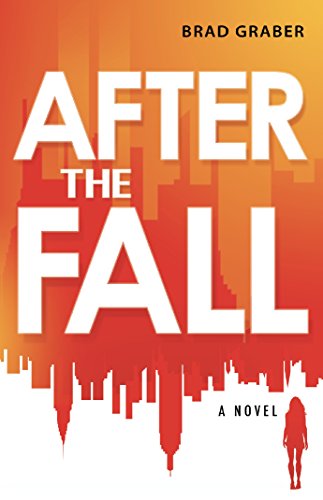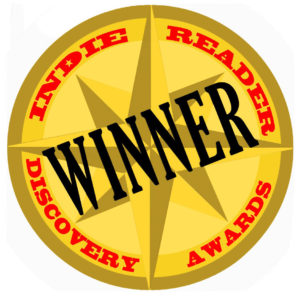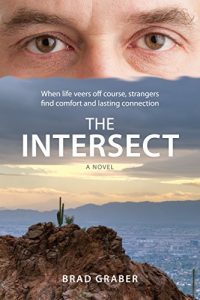After the Fall was the winner in the Gay/Lesbian/Bi/Trans Fiction category of the 2019 IndieReader Discovery Awards, where undiscovered talent meets people with the power to make a difference.
Following find an interview with author Brad Graber .
What is the name of the book and when was it published?
After the Fall, by Brad Graber – May 2018
What’s the book’s first line?
Rikki braced herself as the traffic light at 73rd Avenue and Parson’s Boulevard turned yellow.
What’s the book about? Give us the “pitch”.
Rikki, a teenager being raised by her grandmother in New York City, has a secret. She can’t remember her mother. When she tries to talk to her grandmother, the older woman refuses to engage. Frustrated, Rikki finds a family album hidden in a trunk with photos of her mother as a teenager and a young boy. Is the boy her uncle? Can he shed light on what happened to her mother? Desperate to learn the truth, Rikki goes on a journey to meet Harry, a writer living in Phoenix, who is struggling with his own issues of identity.
What inspired you to write the book? A particular person? An event?
Years ago, the niece of my first partner, then a teenager, reached out to learn about her uncle’s life. It made me wonder about families, the secrets they keep, and why despite the passage of time, they nobly cling to their deceptions.
What’s the most distinctive thing about the main character? Who real, or fictional, would you say the character reminds you of?
Rikki is intelligent, brave, and incredibly self-aware. She knows things aren’t quite right in her world and is willing to rock-the-boat to learn the truth. Rikki’s style reminds me of Darlene Conner from Roseanne. She’s somewhat rebellious, edgy, and questioning of authority. A true nonconformist – but underneath, a warm and gentle heart in search of love and the family she misses. The novel is very much like Juno meets As Good As It Gets.
What’s the main reason someone should really read this book?
We all tell stories about ourselves and our families. Sometimes, these stories are a “spin” on an unhappy truth. Over time, these stories can become traps of self-delusion. After the Fall reminds us that life is precious and only from truth can we begin to learn, grow, and heal.
When did you first decide to become an author?
I’ve been thinking about it since my early twenties but failed to give it the proper attention. Over the years, I’ve written a few stories and even submitted a manuscript to publishers. After two completed novels and a bimonthly blog, I’m fully committed to the process.
Is this the first you’ve written?
After the Fall, is my second novel. My first novel, The Intersect, released in September 2016, tells the story of strangers reaching out and making life changing connections. It’s won three awards and received rave reviews. I also write a blog: There, I Said It! I like to think of it as if Erma Bombeck and Dick Cavett had a baby. Light and fun, I explore the common bond that makes us human.
What do you do for work when you’re not writing?
Writing is now my full-time career. But, I also volunteer with local non-profits. For the last four years. I’ve worked with Duet, taking a blind senior grocery shopping every two weeks and driving others to medical appointments. It’s hands-on and very personal which allows me to give back to others.
How much time do you generally spend on your writing?
I start my day at 7:30 a.m. – sitting in front of my laptop – and work until around 2 p.m. And if it is a productive day, I might do another hour or two in the evening. But, that is not all writing. Much of the time is spent reaching out to readers through various marketing efforts and working to secure speaking engagements and book clubs. Being an Indie author requires that we do more than just write a great novel.
What’s the best and the hardest part of being an Indie?
There are moments that you feel like Cinderella. You want to go to the Ball, but you weren’t invited. And so, you must learn to believe in yourself. To take charge of your work and make sure that it’s presented in the best possible light. That requires wearing lots of hats and learning about the business of being a publisher. It’s a struggle to be proficient in so many areas beyond writing. I often think, “If I could just finish this darn novel it will be good enough”. But that isn’t true. Our work needs to be read and that means we need to find our readers. And that’s the major challenge that Indie authors must address.
What’s a great piece of advice that you can share with fellow Indie authors?
Write the story that you want to read. Doing that alone, will keep the work relevant and interesting. And if you have passion for a project, it’s sure to shine through. It’s also easier to “pitch” work that you’re excited about and proud to have written.
Would you go traditional if a publisher came calling? If so, why?
I’m not sure. After my first novel, I’d have jumped at the chance. A traditional publisher certainly provides cache and access, but I’ve learned so much, and I’ve probably become accustomed at this point to being in charge of my destiny. Technology has changed the world. There is no reason to think that the future won’t be bright for Indie authors. But, being a hybrid author might be a fantastic opportunity. So, I guess, never say never. If you’re a traditional publisher reading this, my door is always open.
Is there something in particular that motivates you?
I am all about revealing truth and injustice. Telling stories about real people – their lives, loves, and relationships. I’m really motivated by the story. Getting it out into the world. I want my readers to step into the shoes of characters who they might only meet in the pages of a good novel.
Which writer, living or dead, do you most admire?
I admire so many writers. I love Ken Follett, Armistead Maupin, Ira Levin, Phillip Roth, and Ayn Rand. I’m moved by the beauty of the works by Tennessee Williams and Eugene O’Neil. And I love Doris Kearns Goodwin. But then, who doesn’t?


